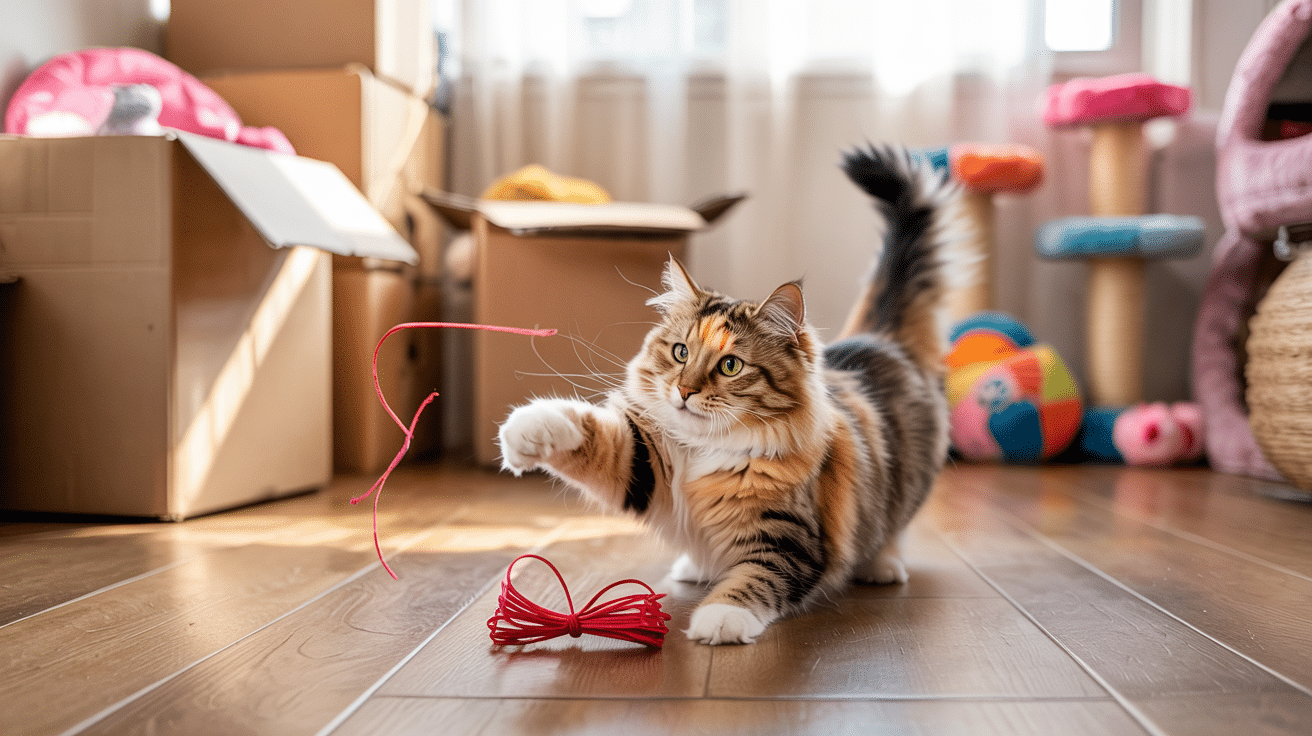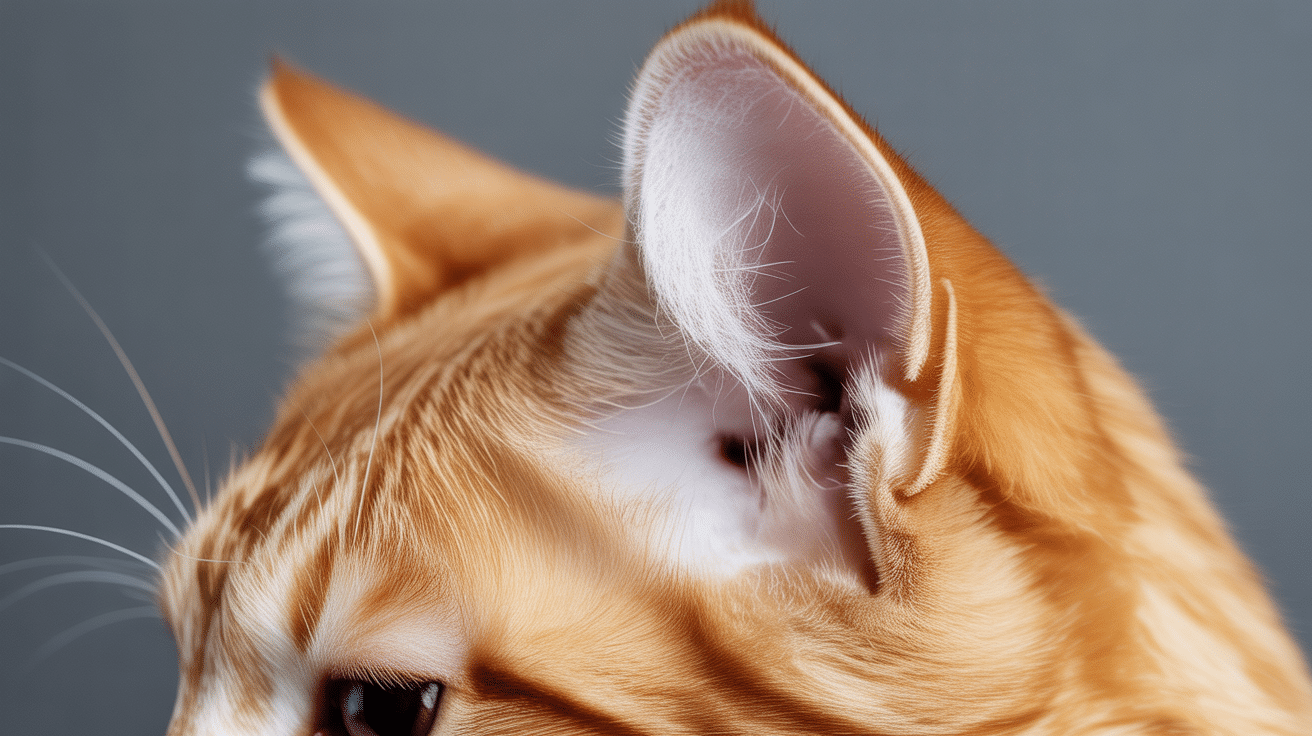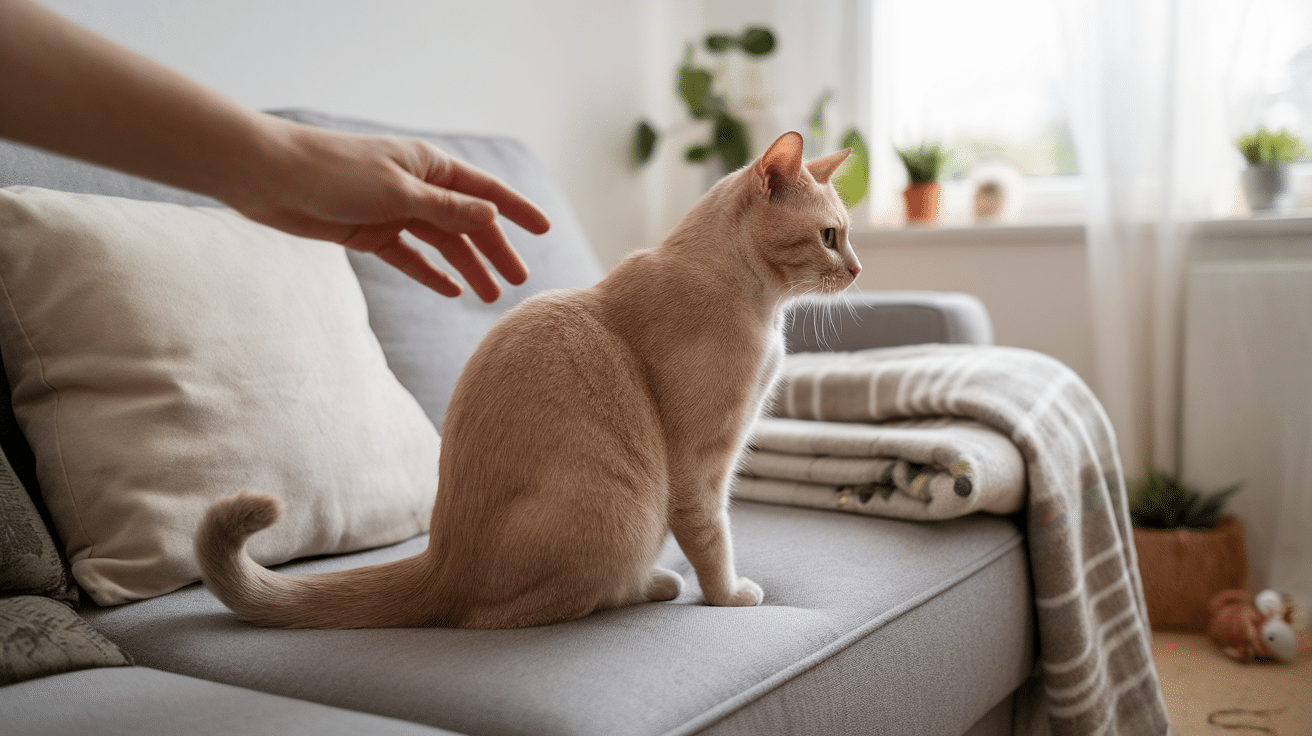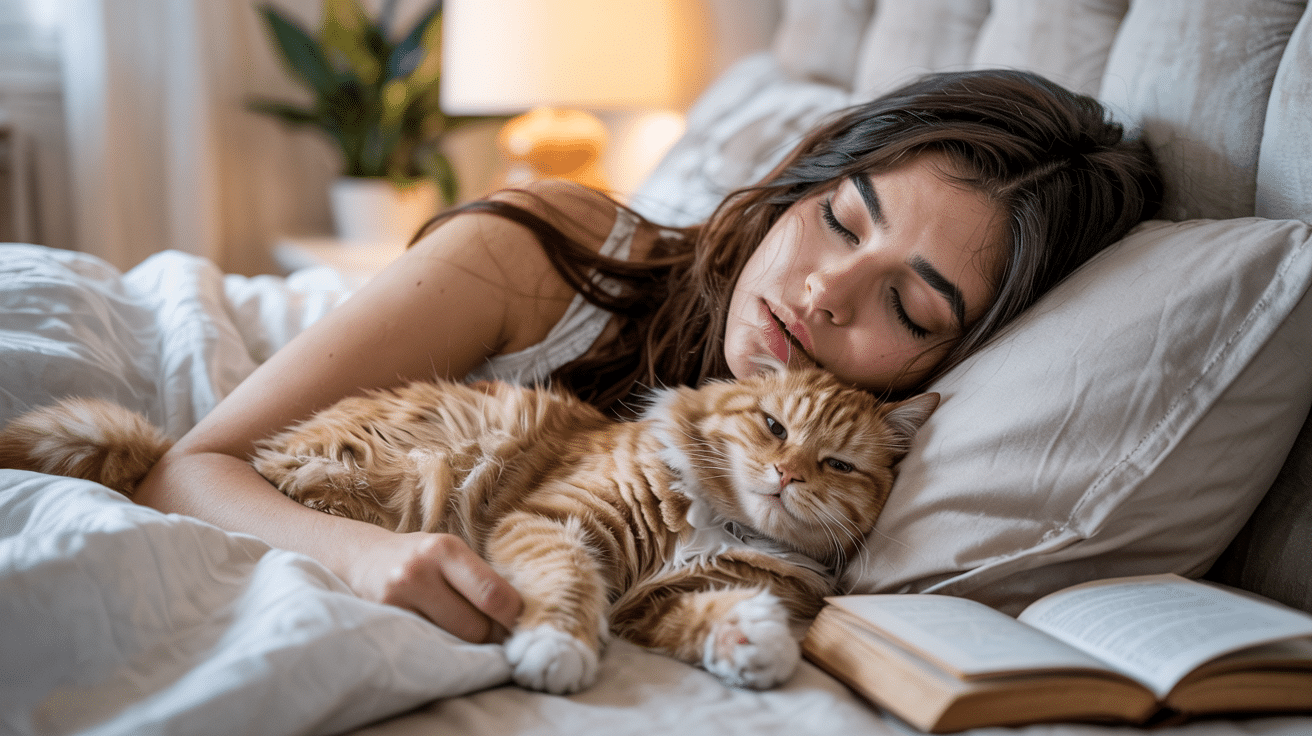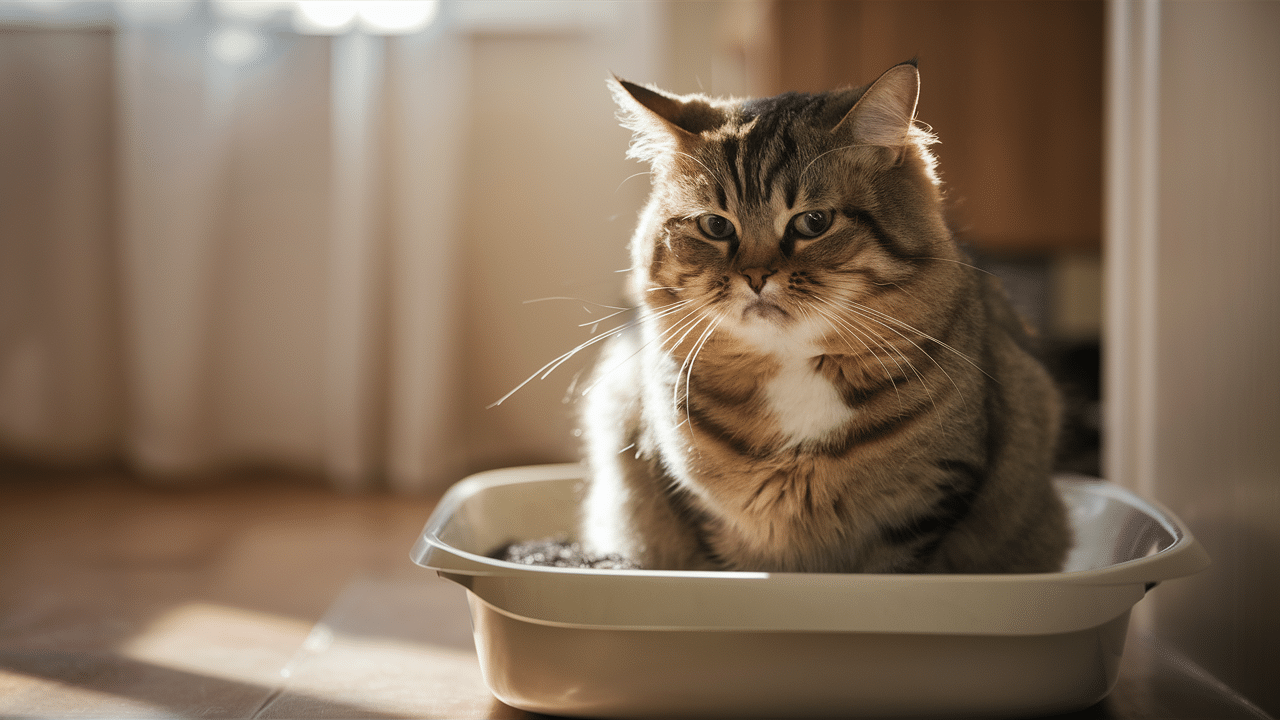Is your cat acting bored or tearing up the couch for fun? Many cat owners struggle to keep their furry friends active and happy indoors.
That’s where this guide comes in. If you’ve been wondering how to entertain your cat, you’re in the right place.
From simple games to clever DIY toys, I’ll walk you through some easy ways to keep your cat busy, curious, and playful every day.
You’ll also learn how to spot signs your cat needs more stimulation and what to do about it. Ready to make your cat’s day more exciting (and your furniture safer)? Let’s get started.
Why Daily Play Matters for Your Cat’s Health
It helps prevent obesity, reduces stress, and can even stop unwanted behaviors like scratching furniture or excessive meowing.
Playtime keeps their minds sharp and bodies agile. Whether your cat is young or old, energetic or mellow, just 15 minutes twice a day can make a big difference.
Use a mix of toys, games, and routines to keep things interesting. Most importantly, your attention makes all the difference; play strengthens your bond every single day.
Fun & Simple Ideas for Cat Entertainment
Play is one of the best ways to keep your cat active, curious, and happy. Whether your cat loves chasing, climbing, or solving puzzles, there are plenty of easy ways to add excitement to their day.
1. String Dancers
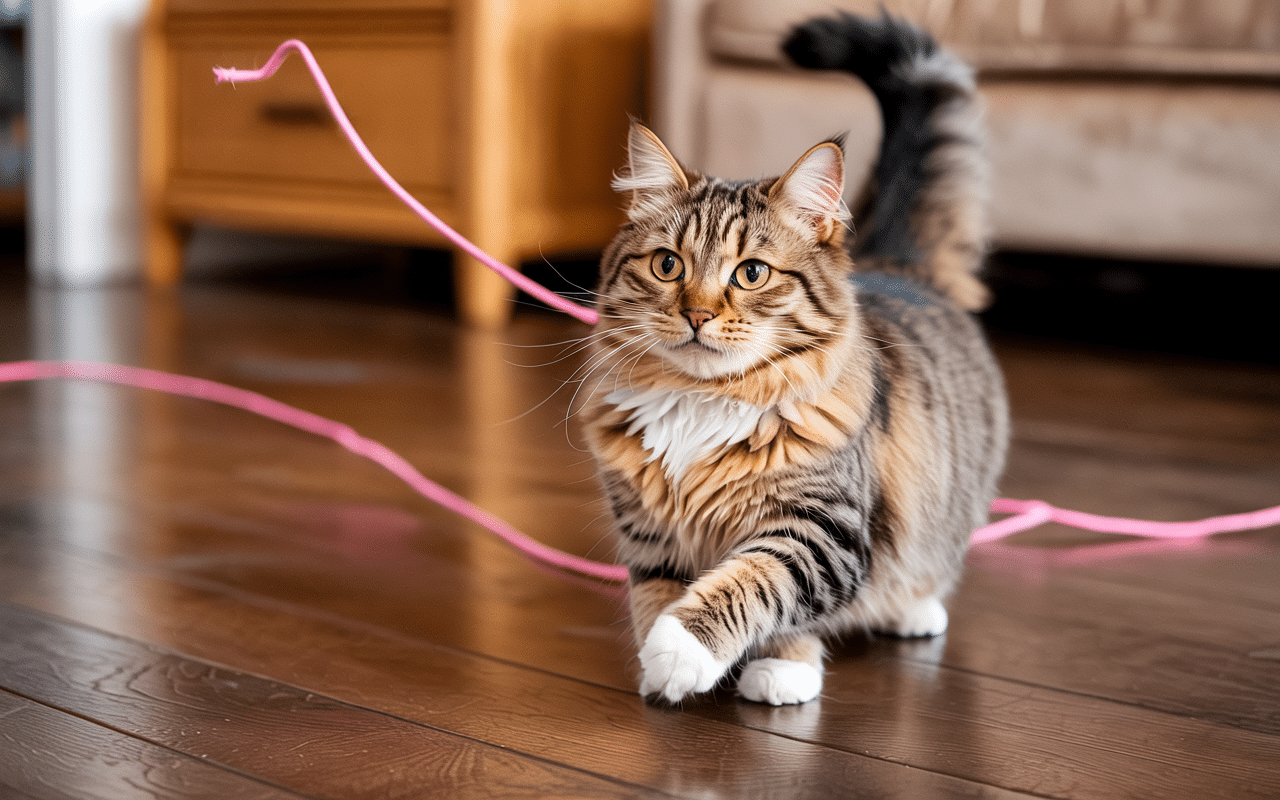
Drag a string across the floor in zigzag patterns. Most cats can’t resist following and pouncing on the moving target. Use different speeds and directions to keep your cat guessing and engaged in the hunt.
2. Box Kingdom
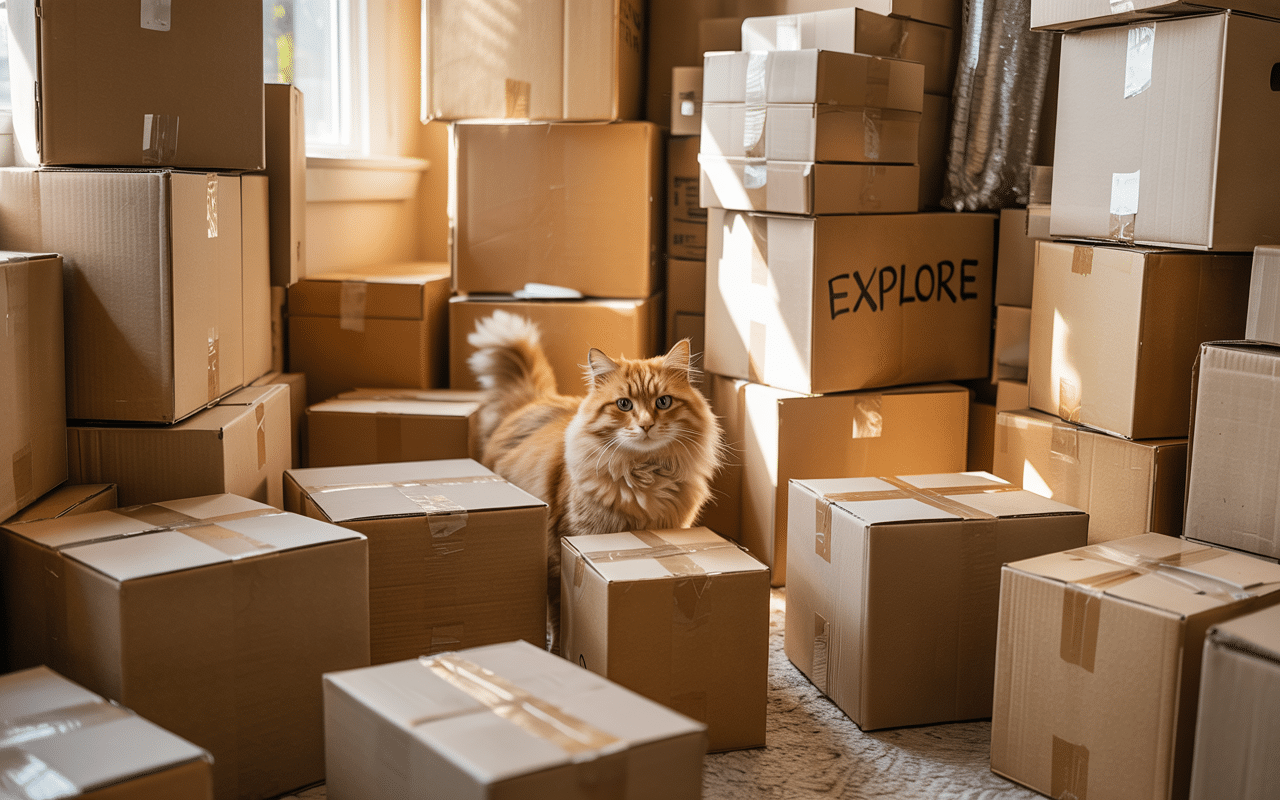
Turn empty cardboard boxes into cat playgrounds. Cut holes in multiple boxes and connect them to make tunnels. Hide treats inside for your cat to find.
3. Paper Ball Olympics
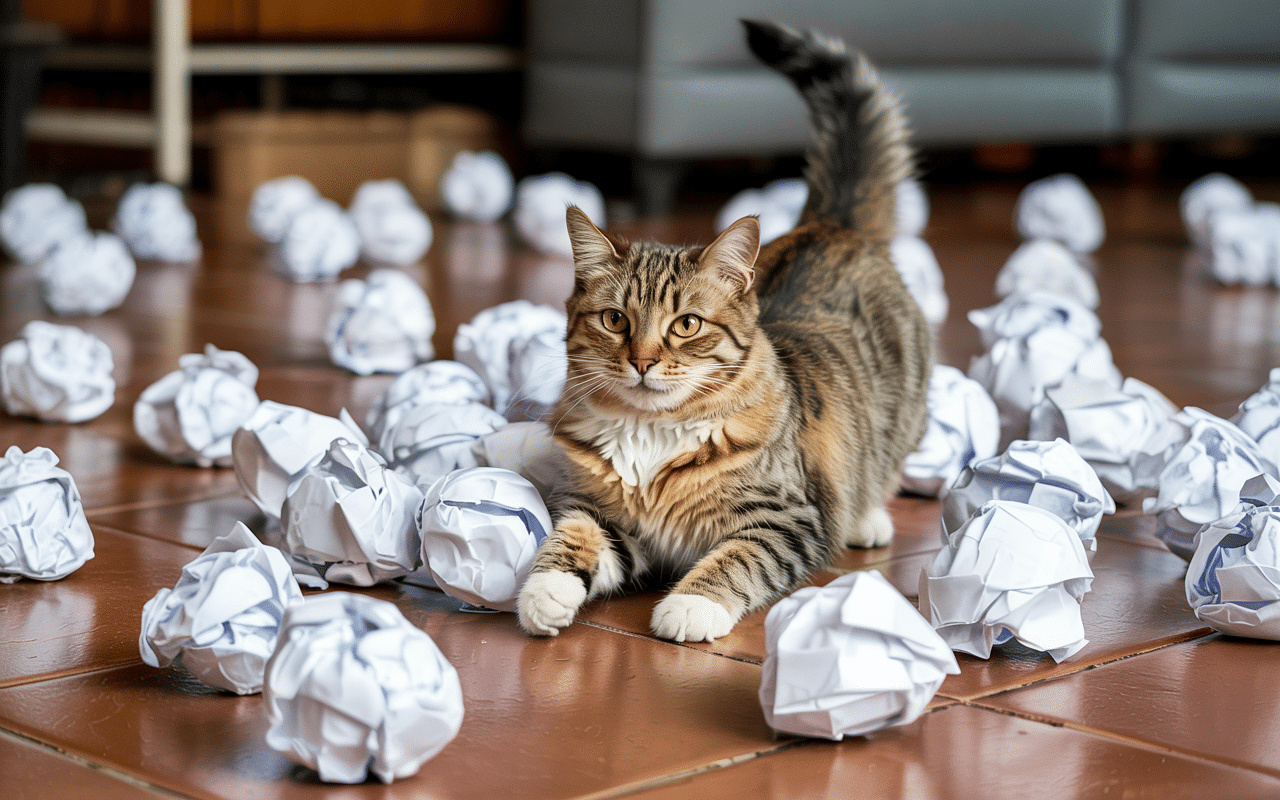
Crumple paper into balls for an instant toy. Roll them across the floor for your cat to chase. The lightweight and unpredictable movement pattern makes these simple toys surprisingly engaging for most felines.
4. Window Bird Watching
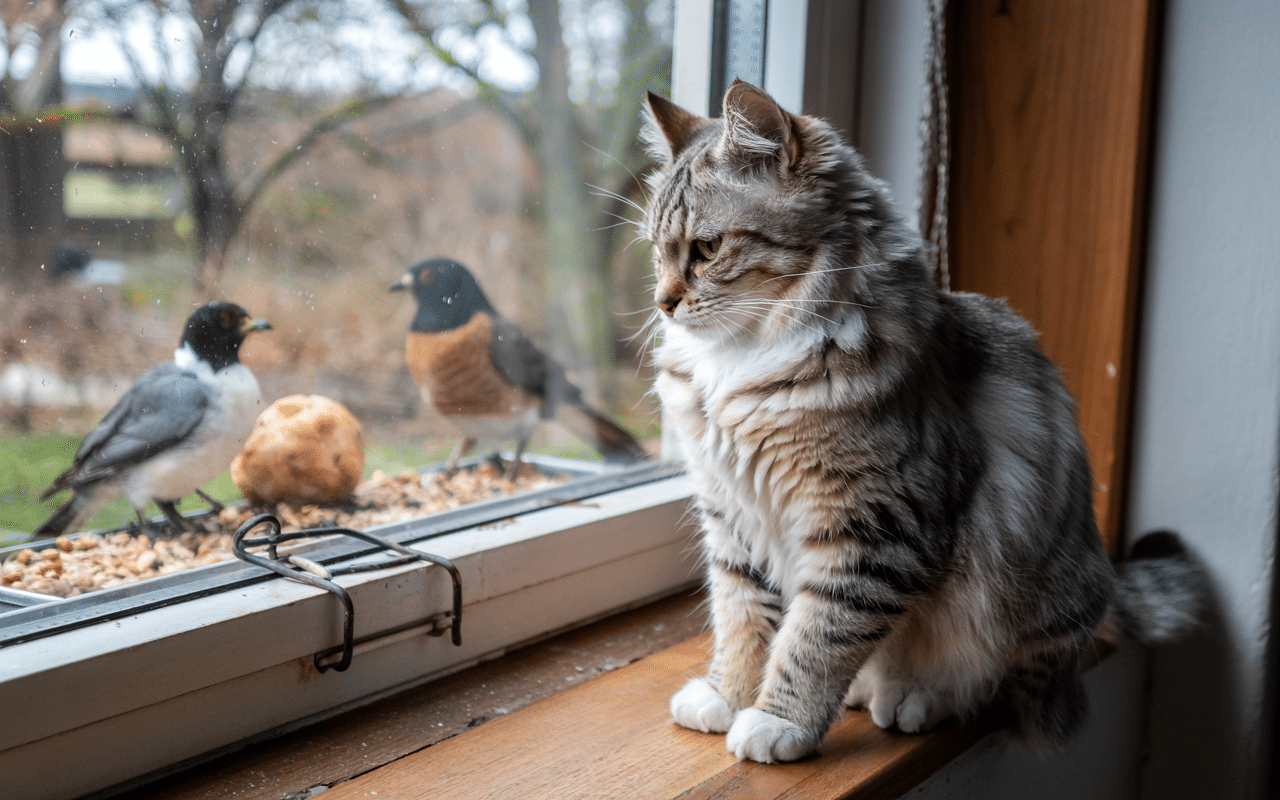
Position a cat perch near a window with good views of birds or squirrels. This will give your cat hours of mental stimulation as it watches outdoor wildlife with intense focus.
5. Treat Hunt
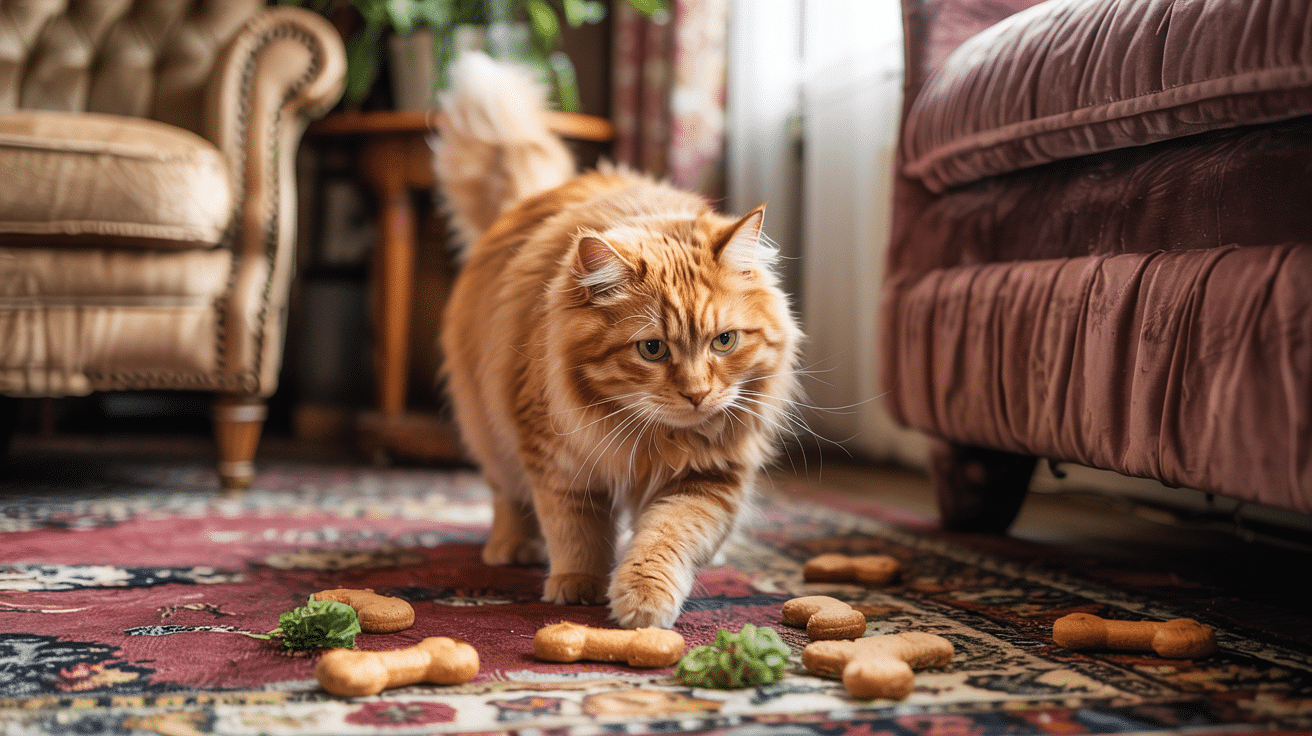
Hide small treats around your home for your cat to find. Start with easy spots and gradually make the game more challenging.
6. Catnip Toys
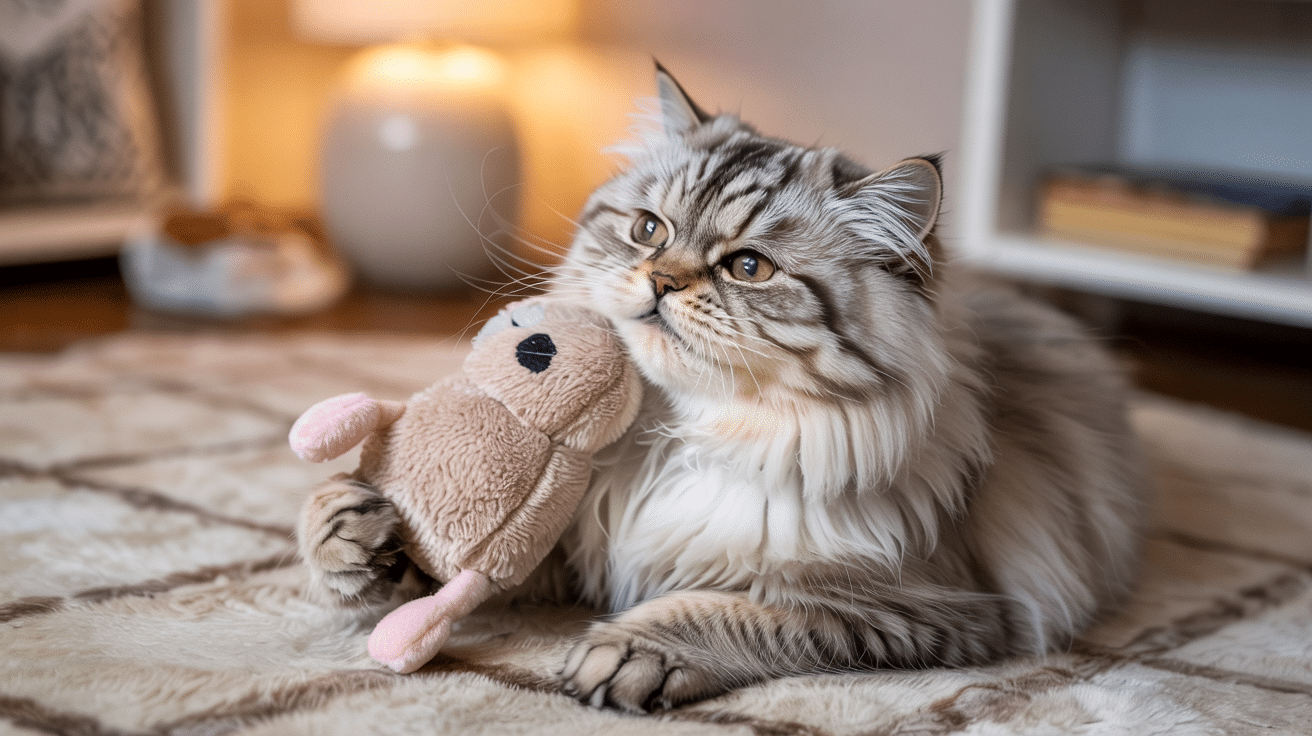
Offer toys filled with fresh catnip. Most cats respond to this plant with playful behavior. Switch these toys out regularly, as cats can become used to them if left out all the time.
7. Tunnel Dash
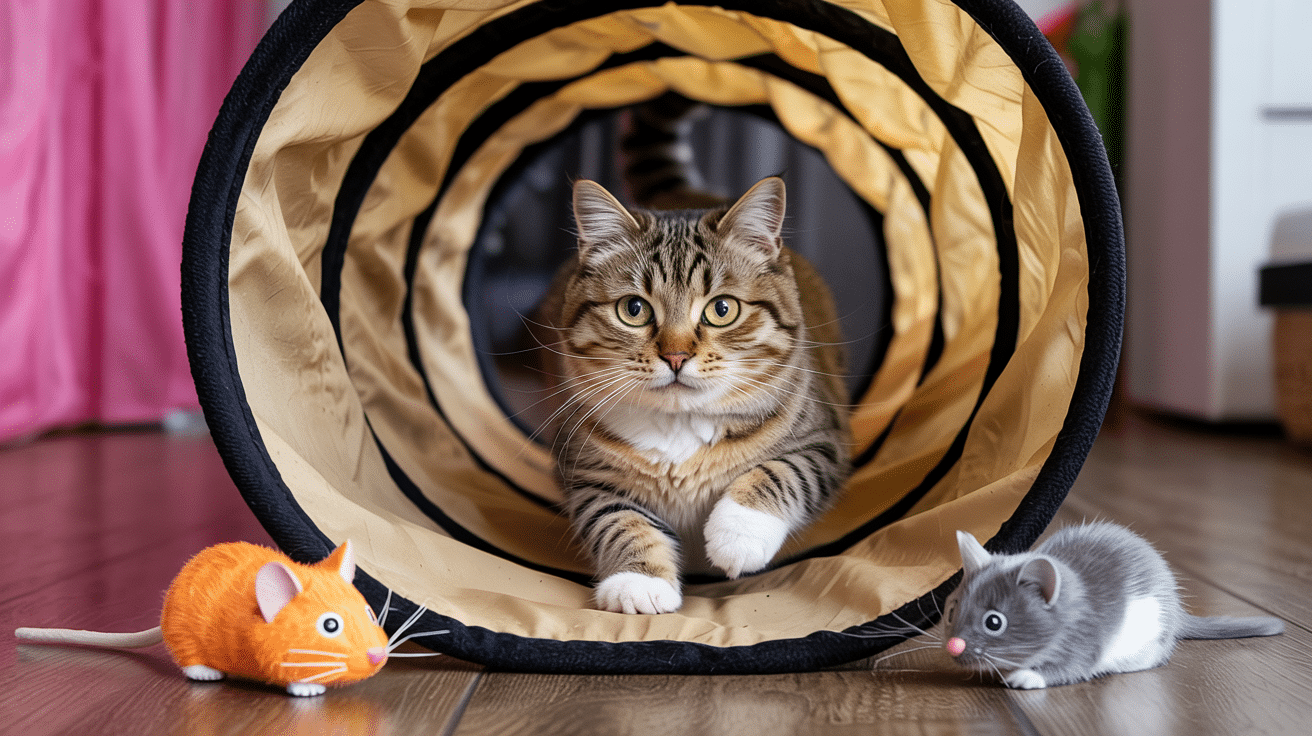
Fabric or crinkle tunnels provide hiding spots and racing tracks. Dangle toys at either end to encourage your cat to run through. The confined space with multiple exits appeals to their stalking instincts.
8. Feather Wand Play
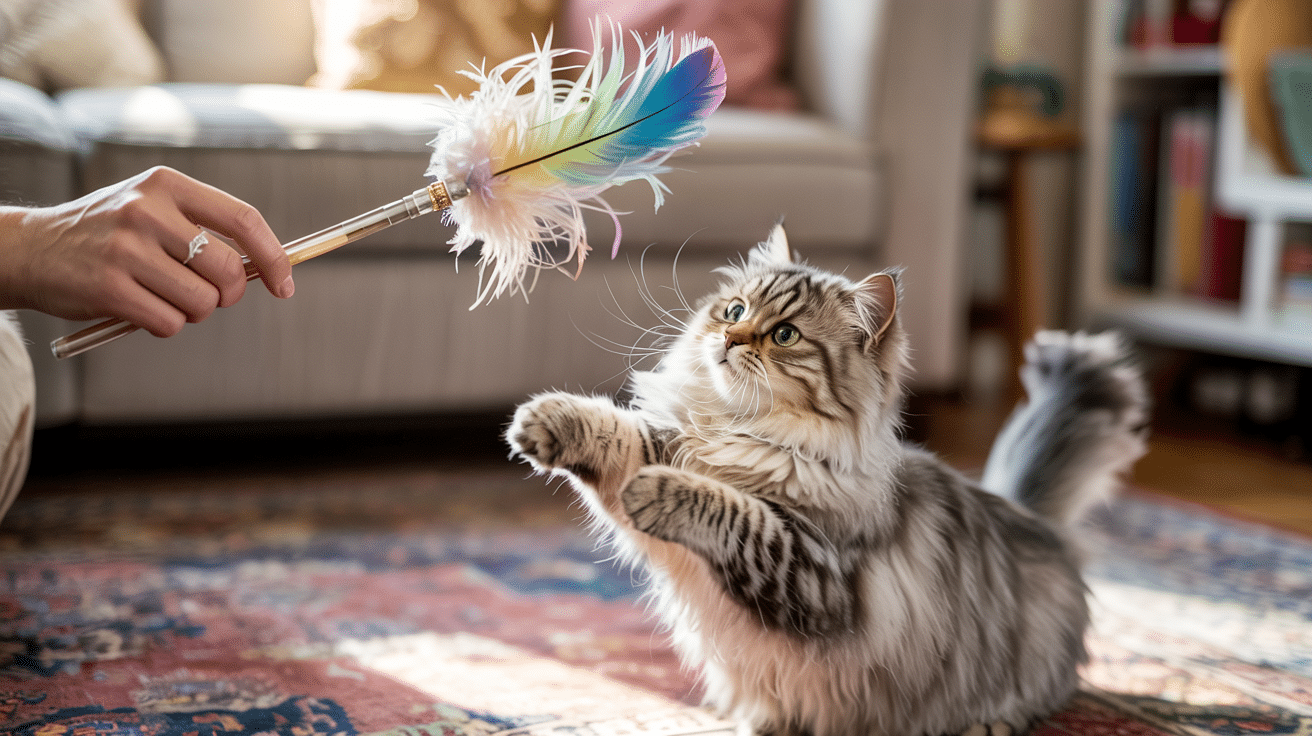
Wave feather wands that mimic bird movements. Make the “bird” land, take off, and flutter in the air. Allow your cat to catch it sometimes to keep the game satisfying and build confidence.
9. Bubble Chase
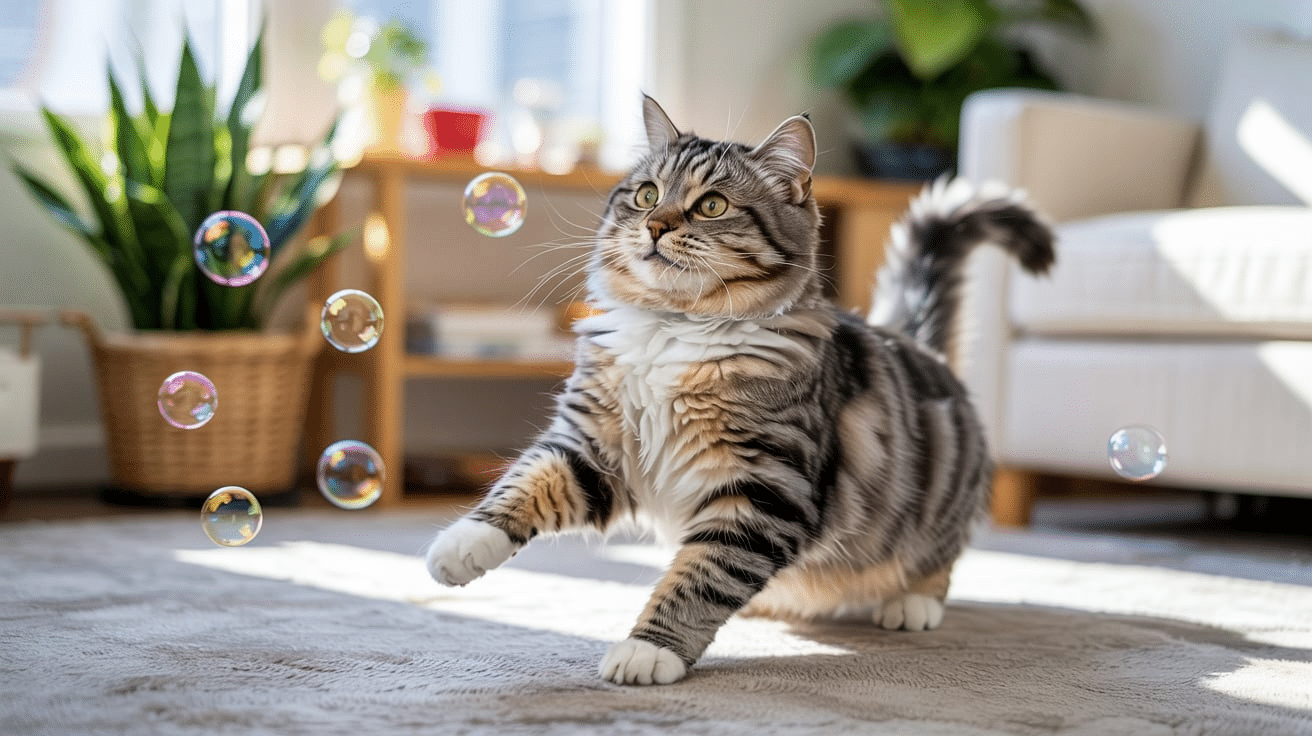
Use cat-specific bubbles (non-toxic and often catnip-scented). Blow them near your cat and watch as they bat and chase these floating objects.
10. Ice Cube Hockey
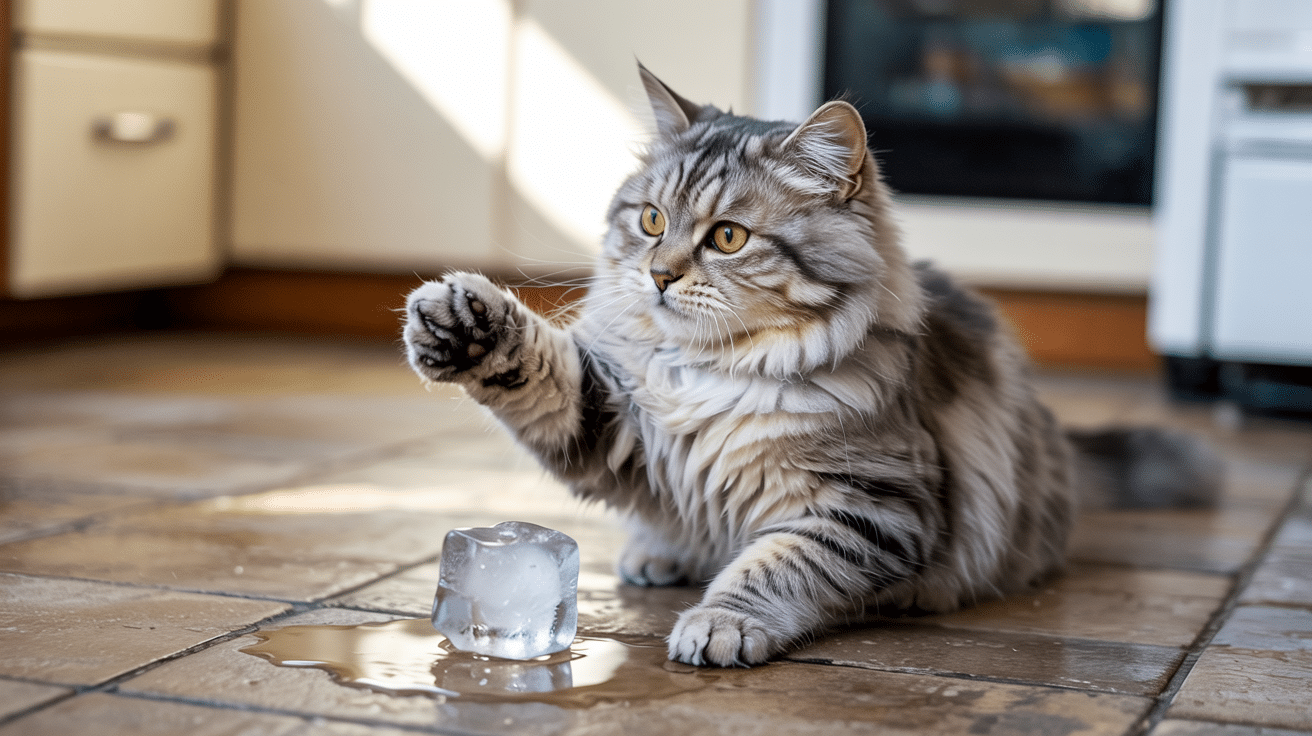
Slide ice cubes across smooth floors for an instant game. Many cats find the soft, cool, moving objects fascinating.
11. Rotating Toy Box
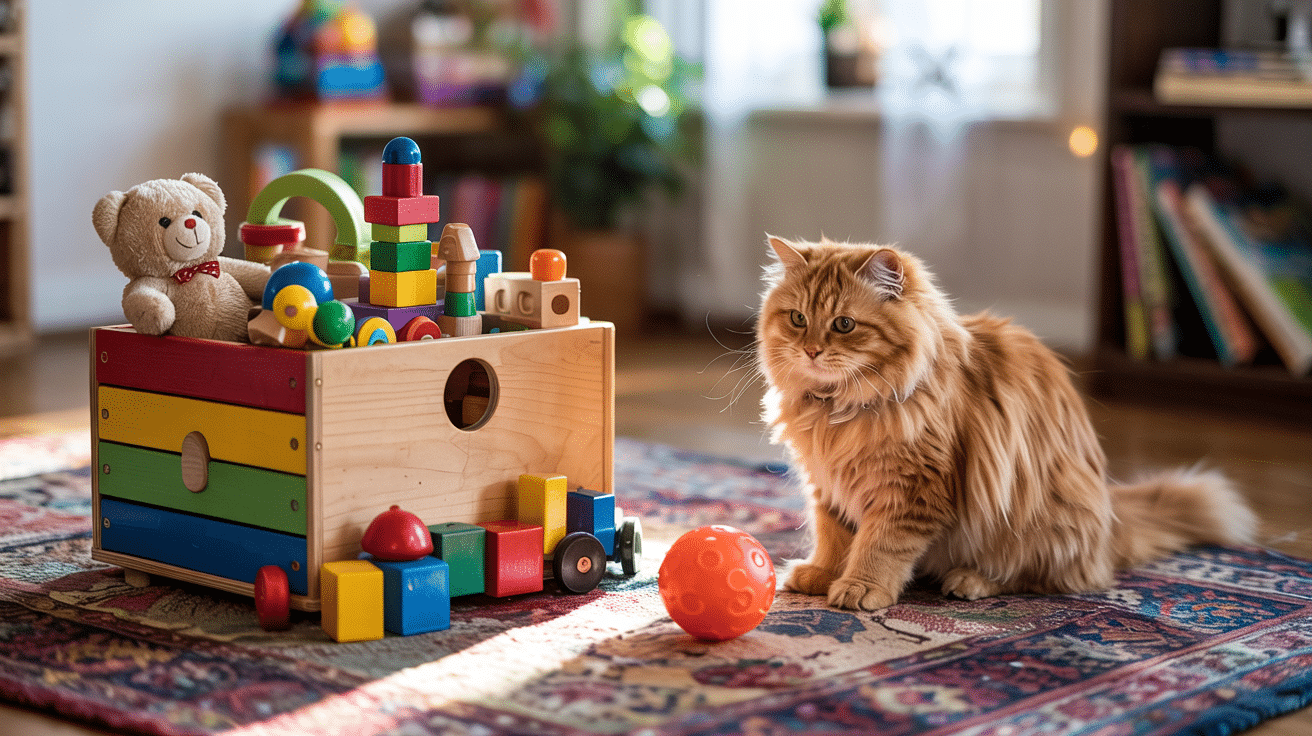
Keep a box of cat toys, but only make 3-4 available at once. Switch them every few days to maintain novelty. Toys that have been put away will seem new and exciting when reintroduced.
12. Food Ball Puzzles
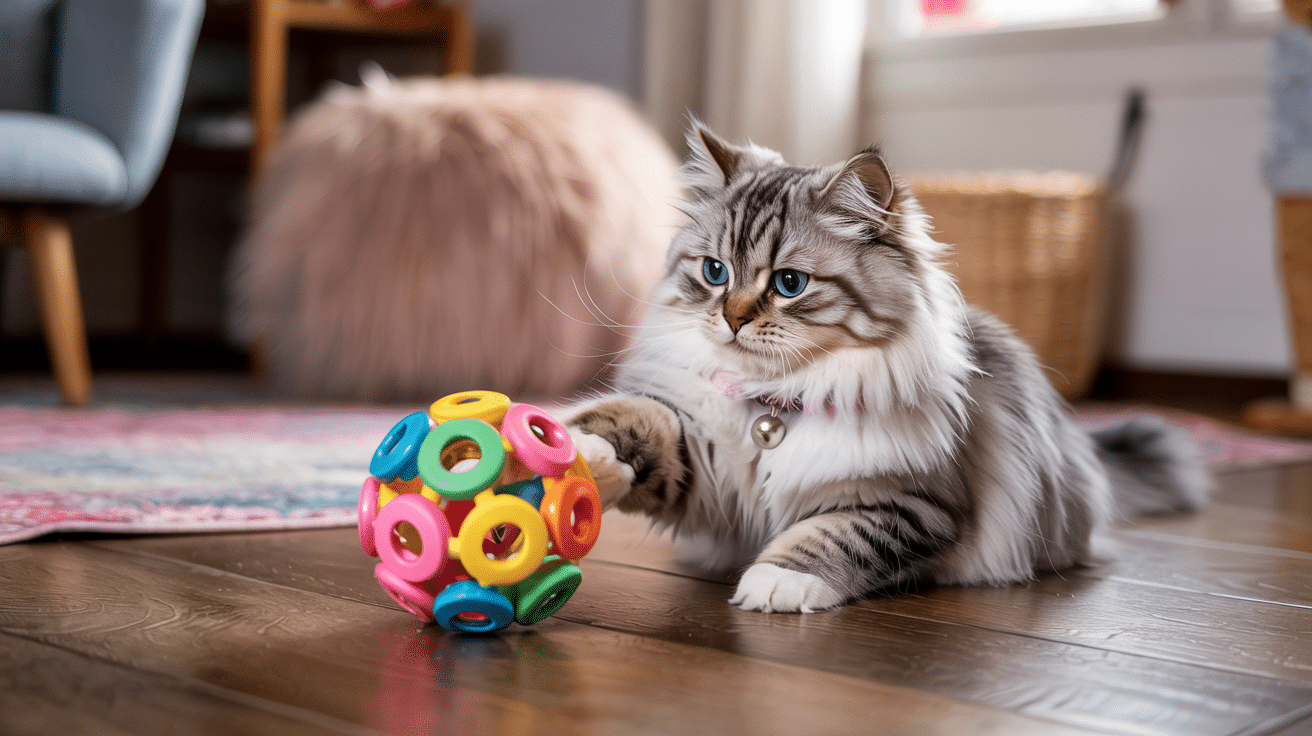
Put dry food in puzzle balls that release kibble as they roll. This turns mealtime into play and mental work, slowing down fast eaters while giving them a fun task to work through.
13. Cat TV Videos
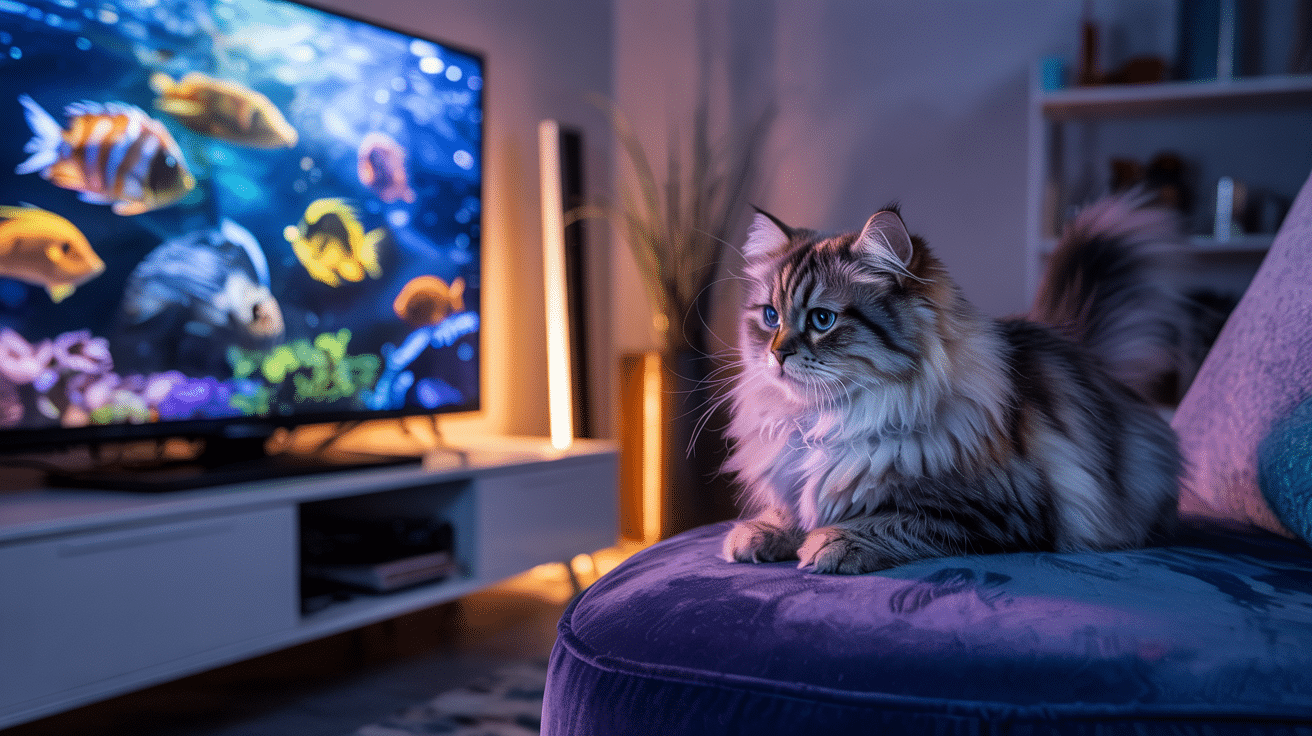
Play videos made for cats showing birds, fish, or mice. Many cats will watch these videos with great interest. Position your cat comfortably in front of the screen for this low-effort entertainment option.
14. Social Grooming Time
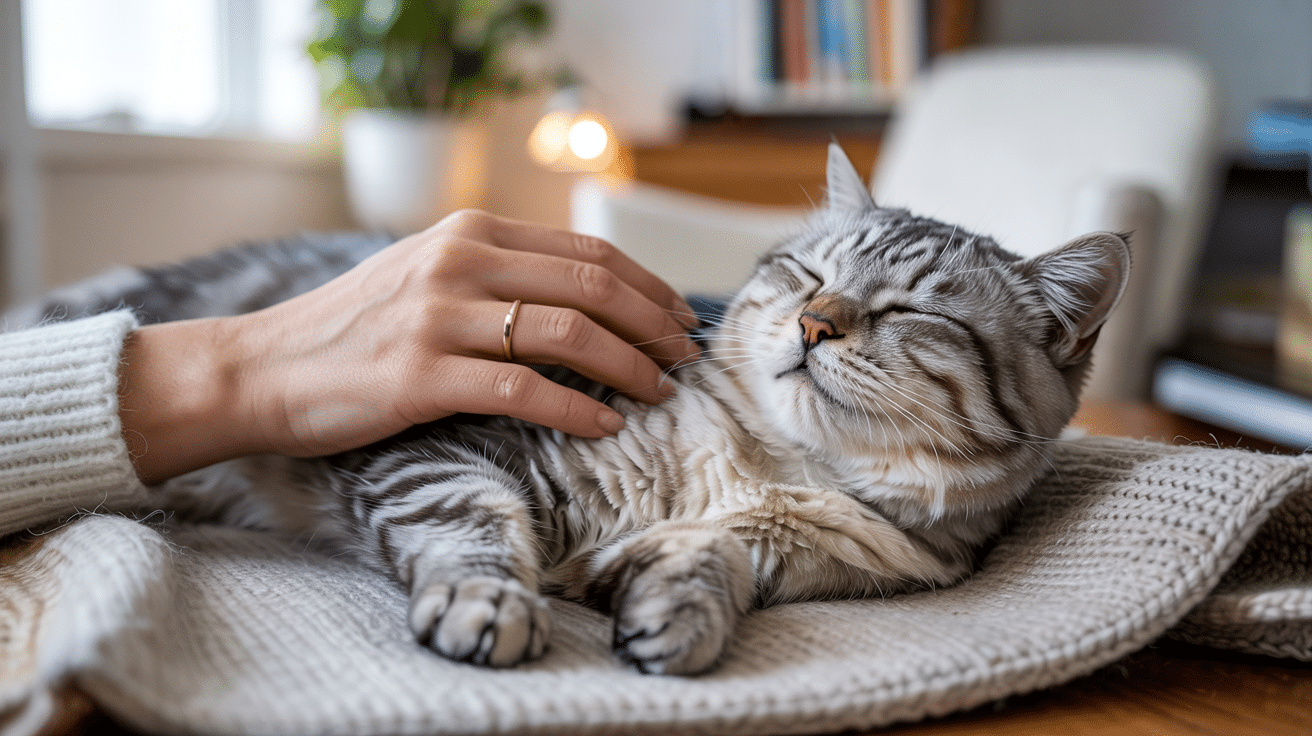
Use gentle brushing sessions as bonding time. Many cats view grooming as a social activity and will enjoy the attention.
15. Paper Bag Fun
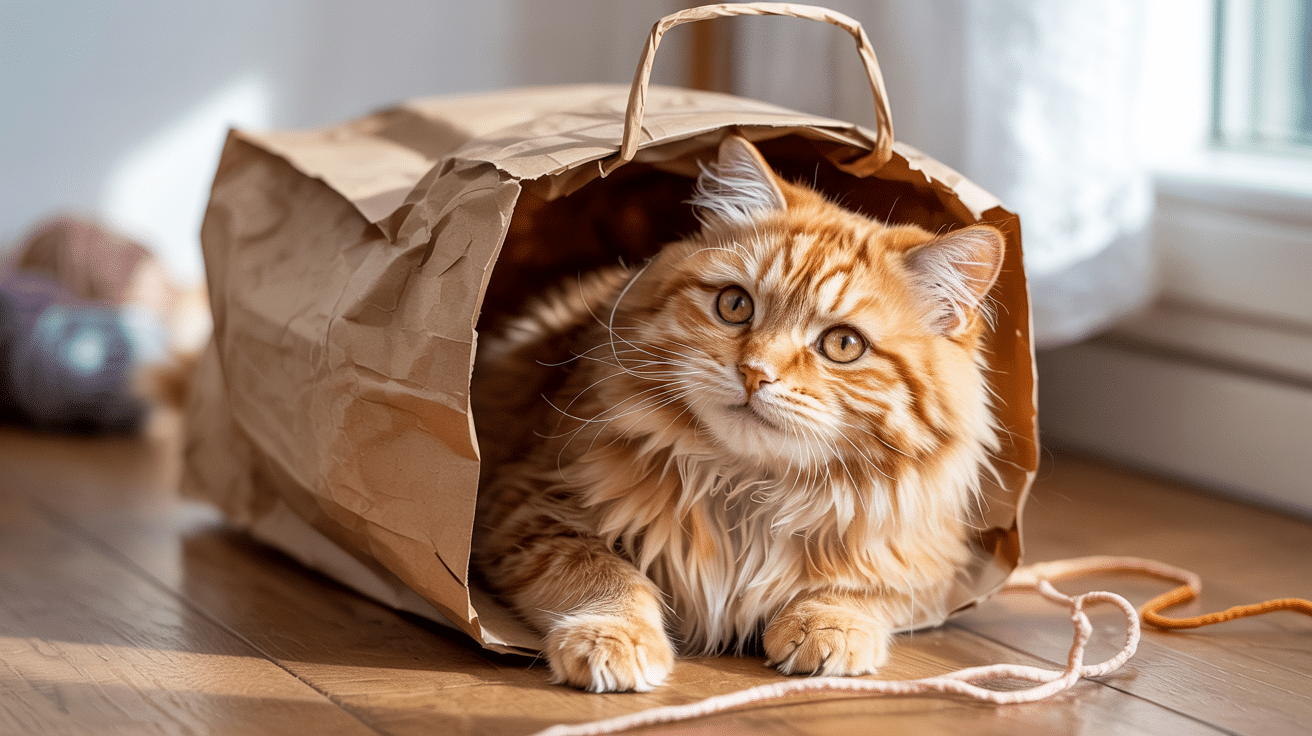
Leave out open paper bags (handles removed for safety). Cats love hiding inside, jumping in and out, and attacking the crinkling material. The sound and movement make this simple item highly appealing.
16. Ping Pong Ball Pit
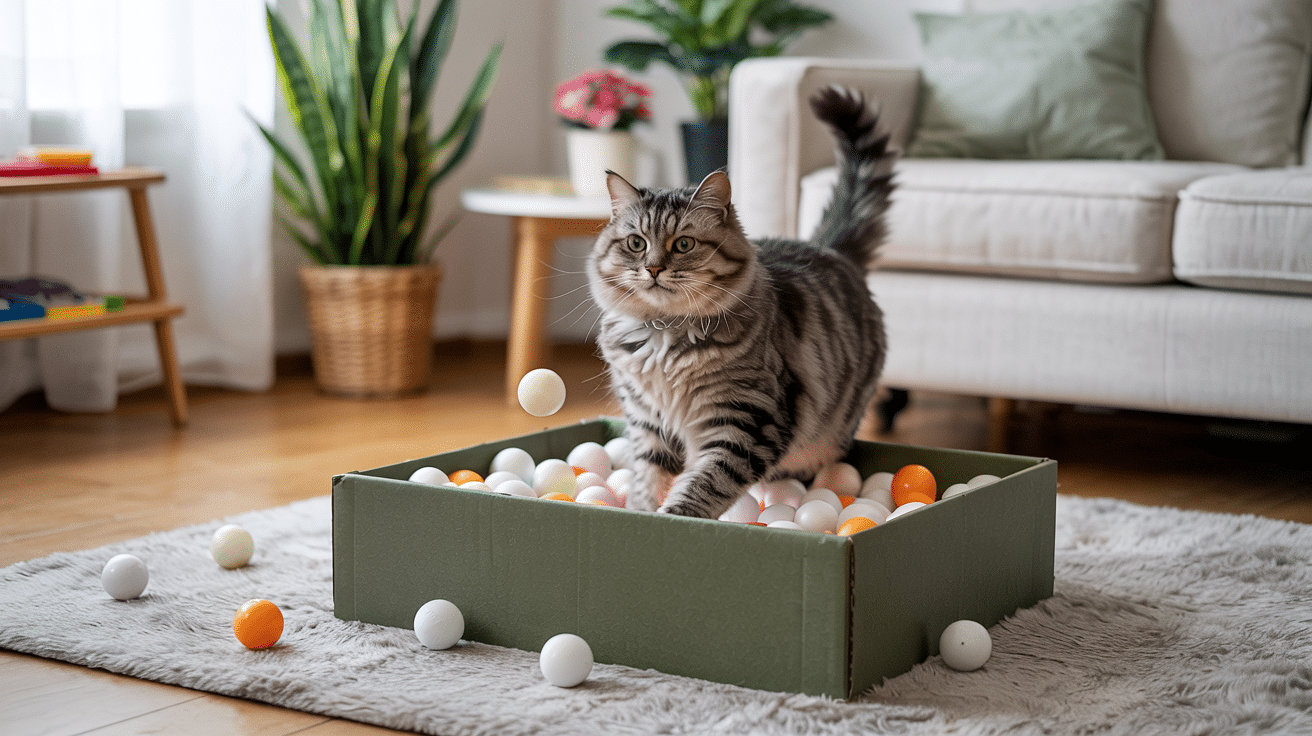
Fill a shallow box or bathtub with ping pong balls. The light, bouncy balls move in ways cats find hard to resist. The contained area keeps the balls from rolling under furniture.
17. Carpet Scratching Posts
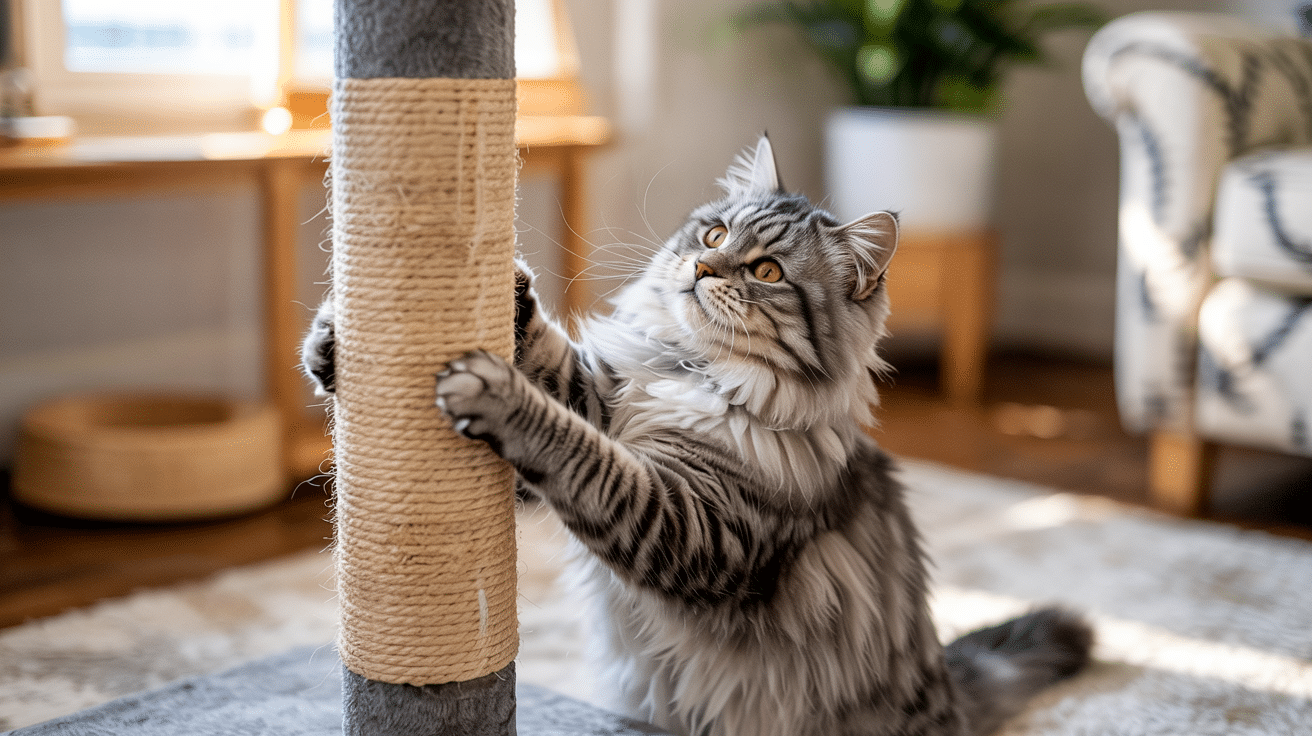
Provide sturdy scratching posts covered in rough materials. Cats need to scratch to maintain claw health and mark territory, and having proper places to scratch keeps them from using furniture.
18. High Perches
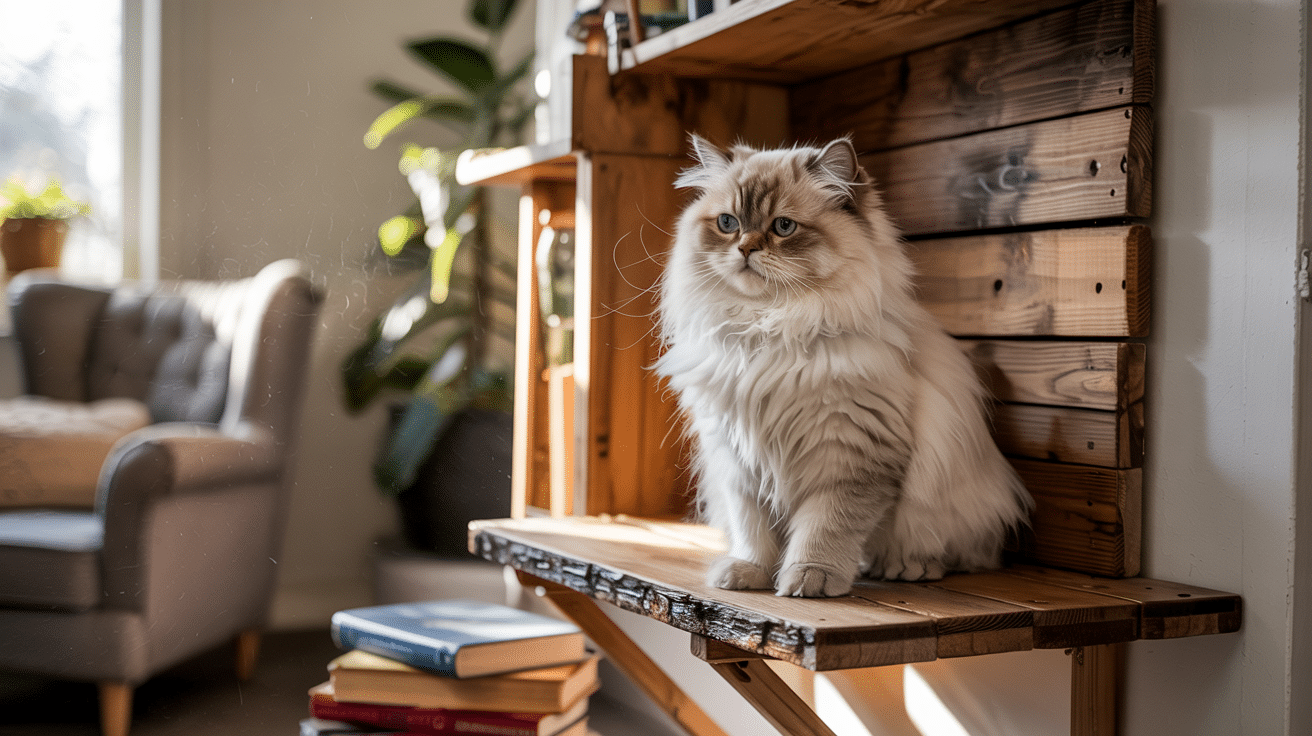
Install wall shelves or cat trees that allow climbing to high spots. Cats feel safe and in control when they can observe from above. The climbing itself provides good physical exercise.
19. DIY Fishing Rod
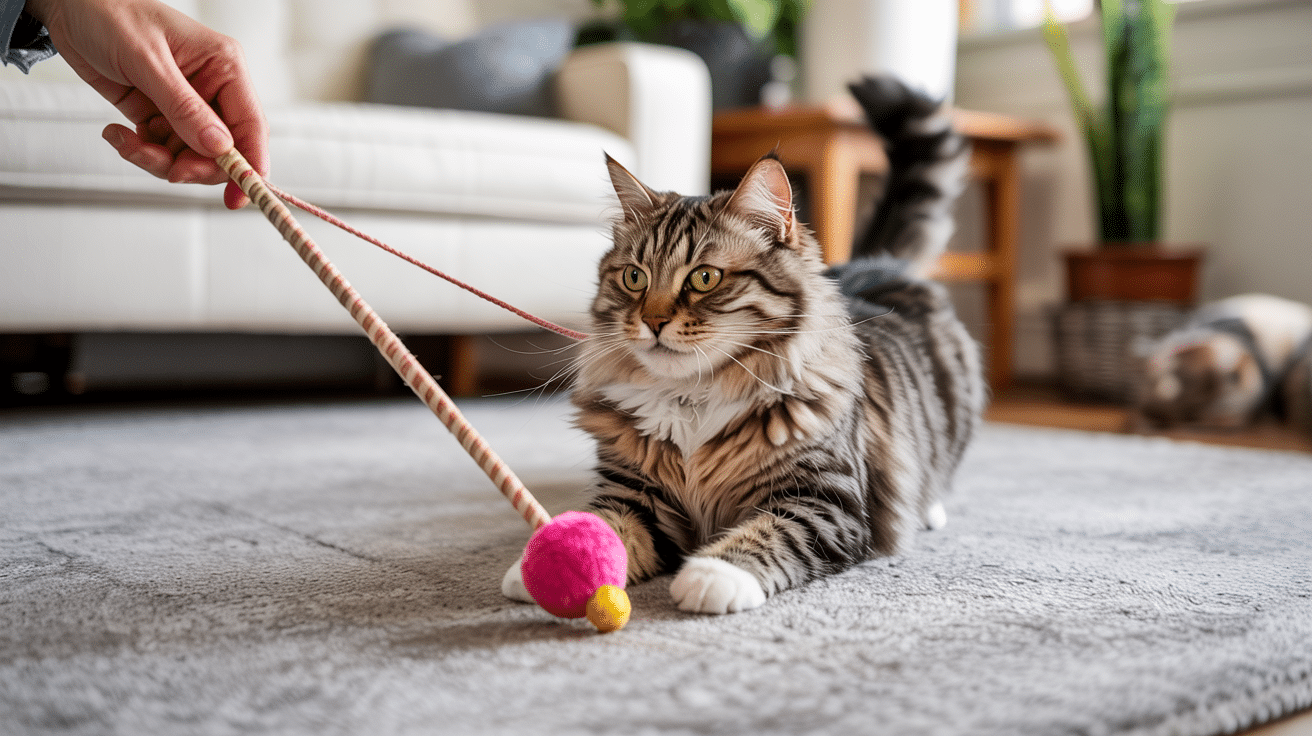
Tie a small toy to a string on a stick. Cast the “line” across the room for your cat to chase. Vary the movement to mimic different prey – some cats prefer ground movements while others like air “birds.”
20. Cardboard Scratch Pads
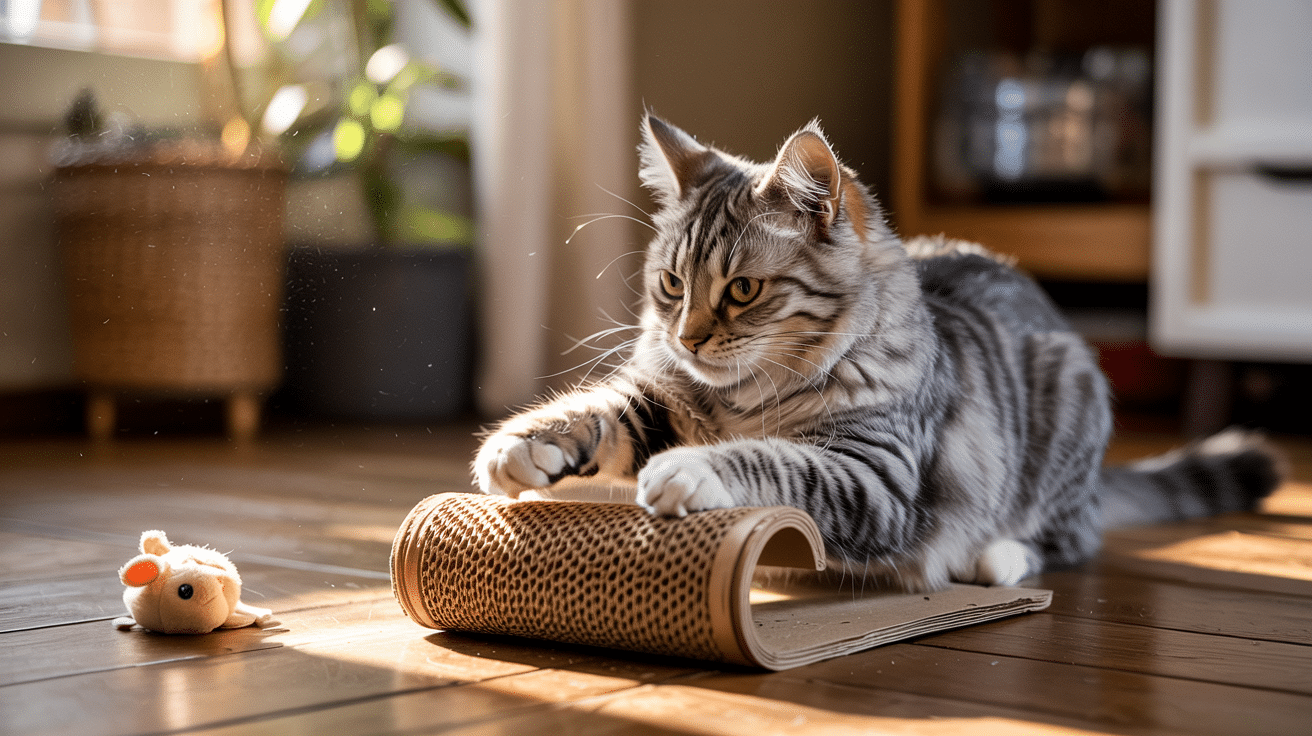
Offer flat cardboard scratchers with catnip rubbed in. Many cats enjoy the texture and sound of cardboard under their claws.
21. Morning Chase Game
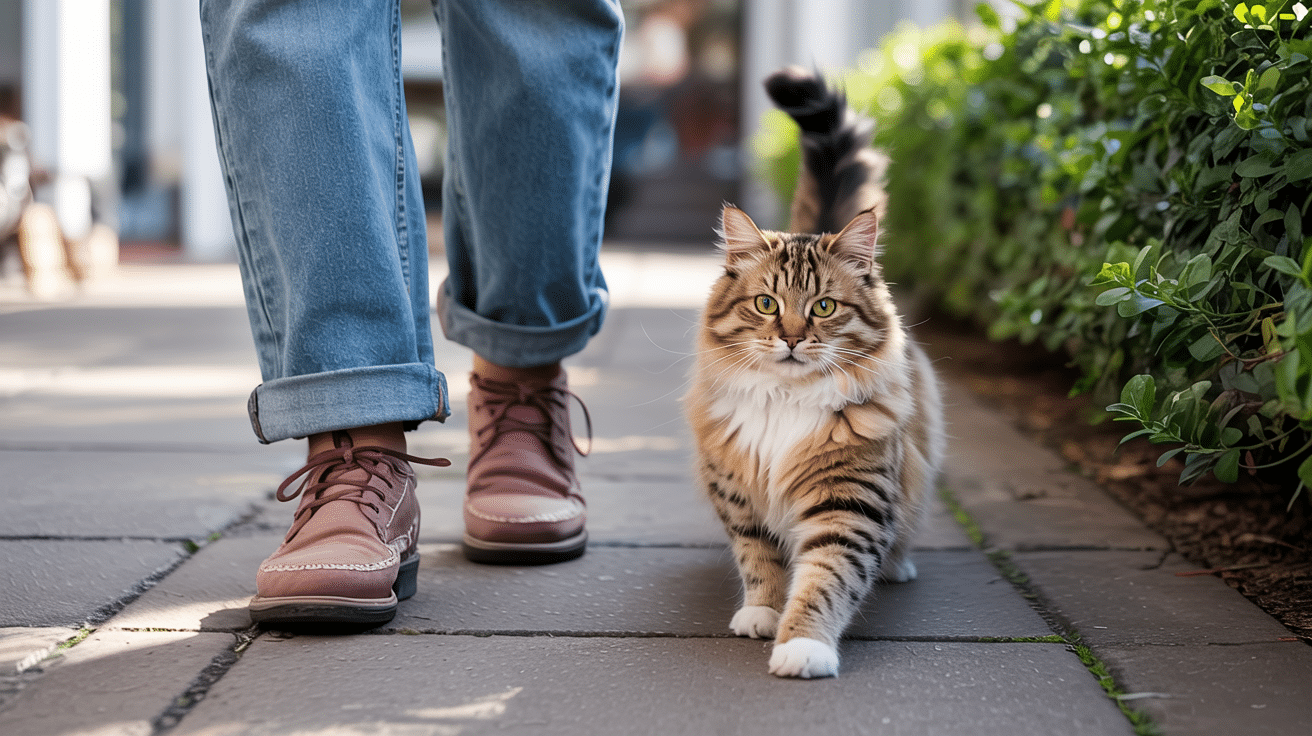
Make play part of your morning routine. Move quickly around the house while your cat follows and pounces at your feet. This uses your cat’s natural morning energy for positive interaction.
22. Toilet Paper Roll Toys
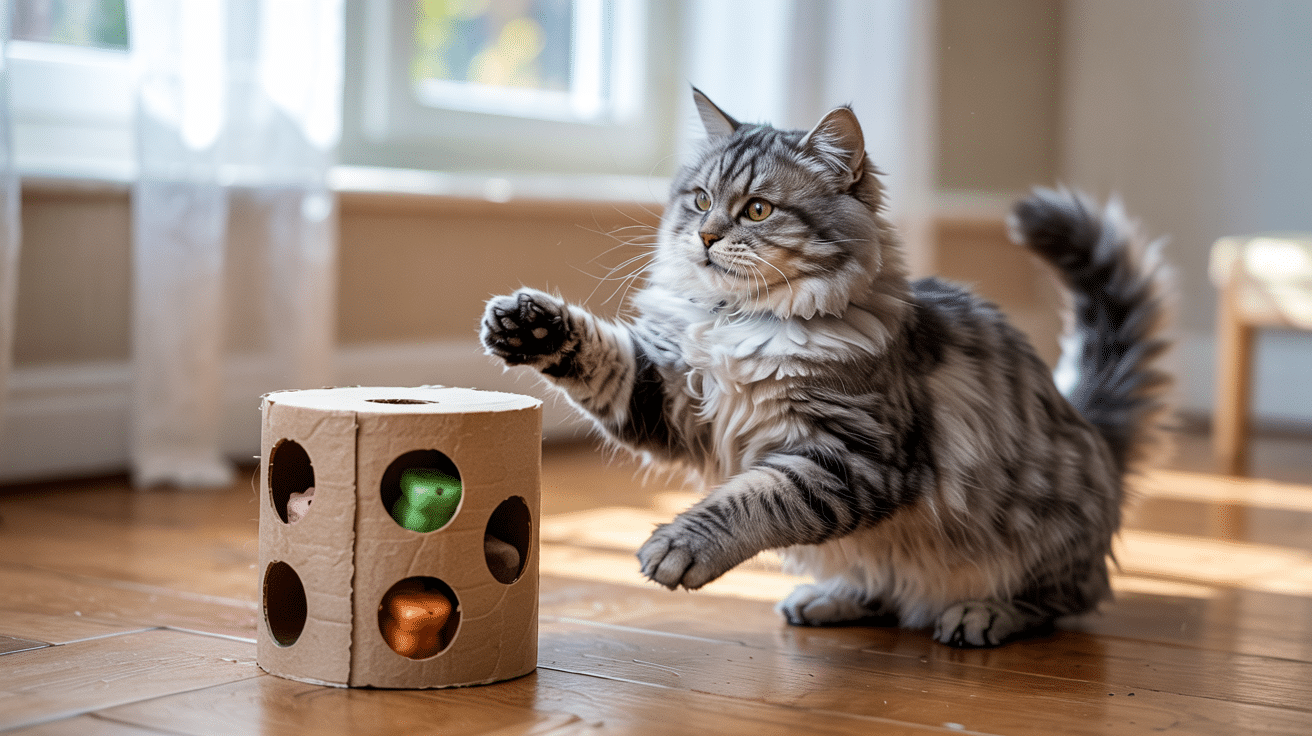
Turn empty toilet paper rolls into toys by cutting small holes and putting treats inside. Your cat will bat and roll the tube to get to the food. This simple puzzle works on mental and physical skills.
23. Cat-Safe Plant Garden
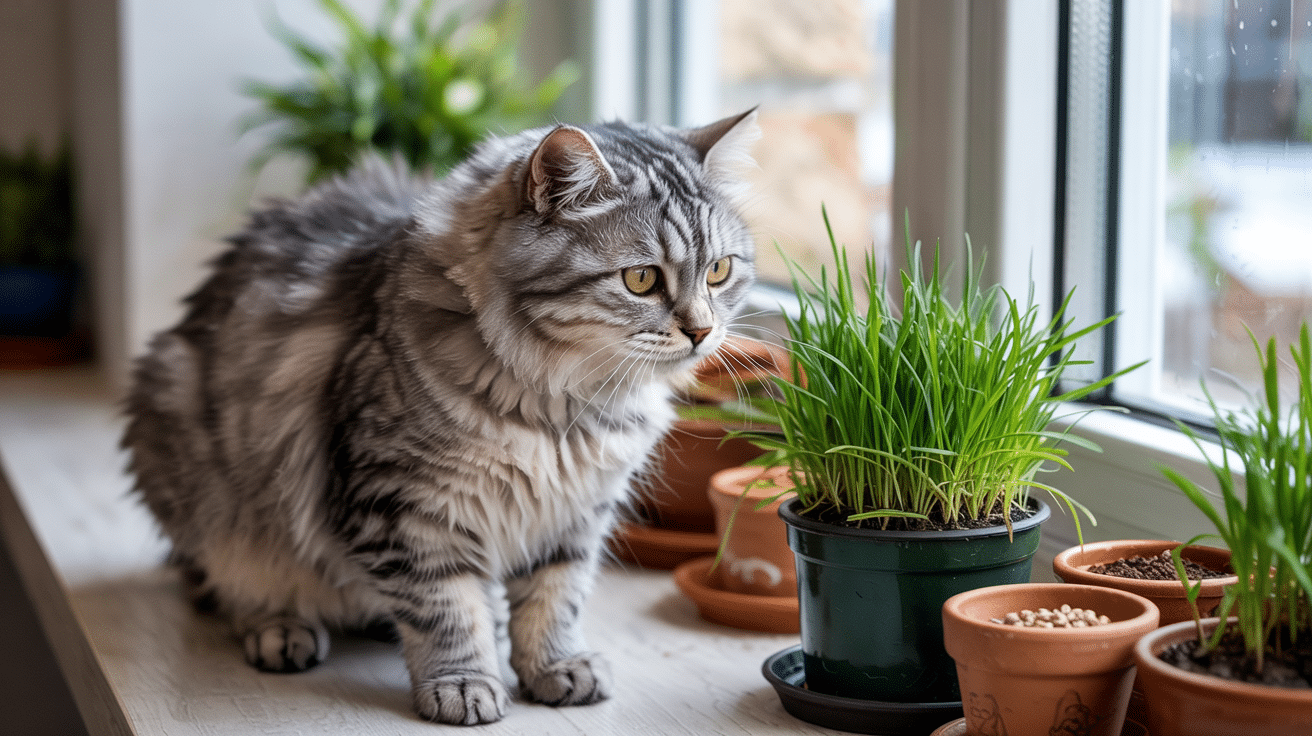
Grow cat grass, catnip, or silver vine in small pots. These plants are safe for cats to smell, rub against, and nibble. Growing multiple plants allows you to rotate them when one gets worn down.
24. Hide and Call
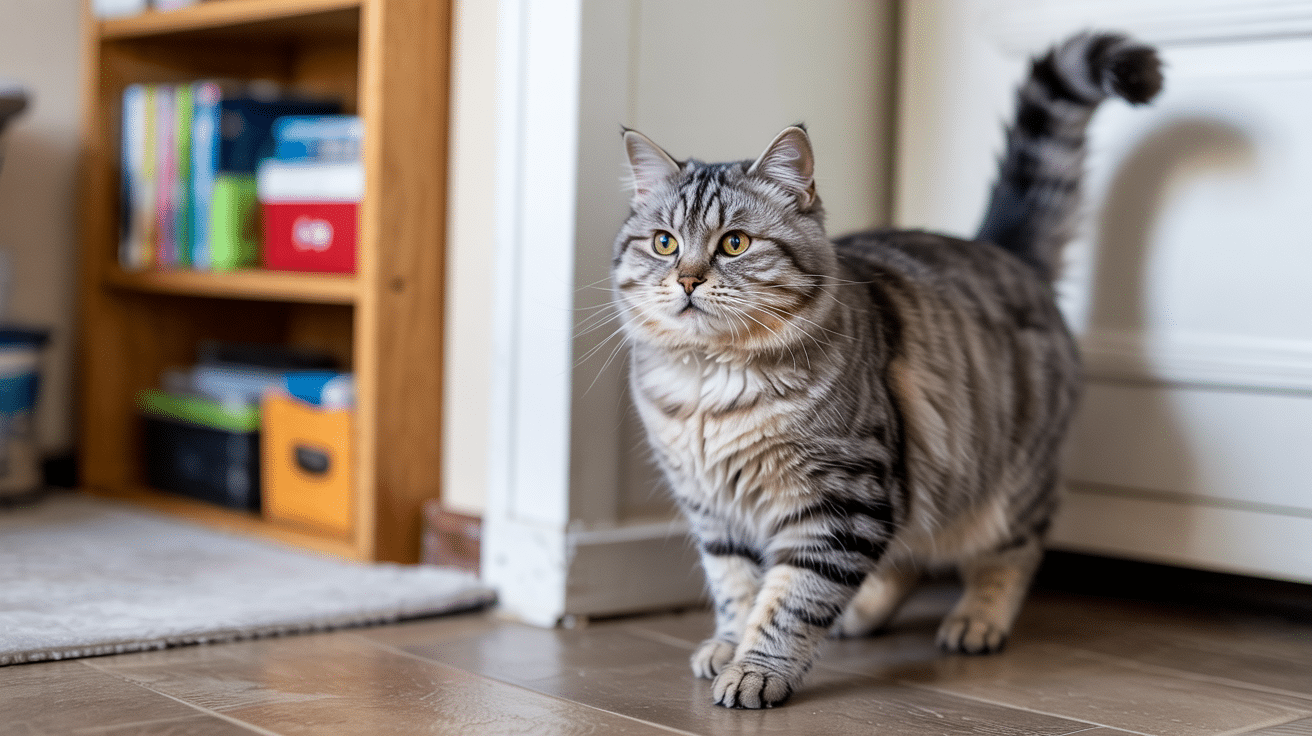
Hide somewhere in your home and call your cat’s name. Many cats enjoy the seeking game and will come running to find you. This builds on their natural curiosity and hunting skills.
25. Empty Tissue Box Fun
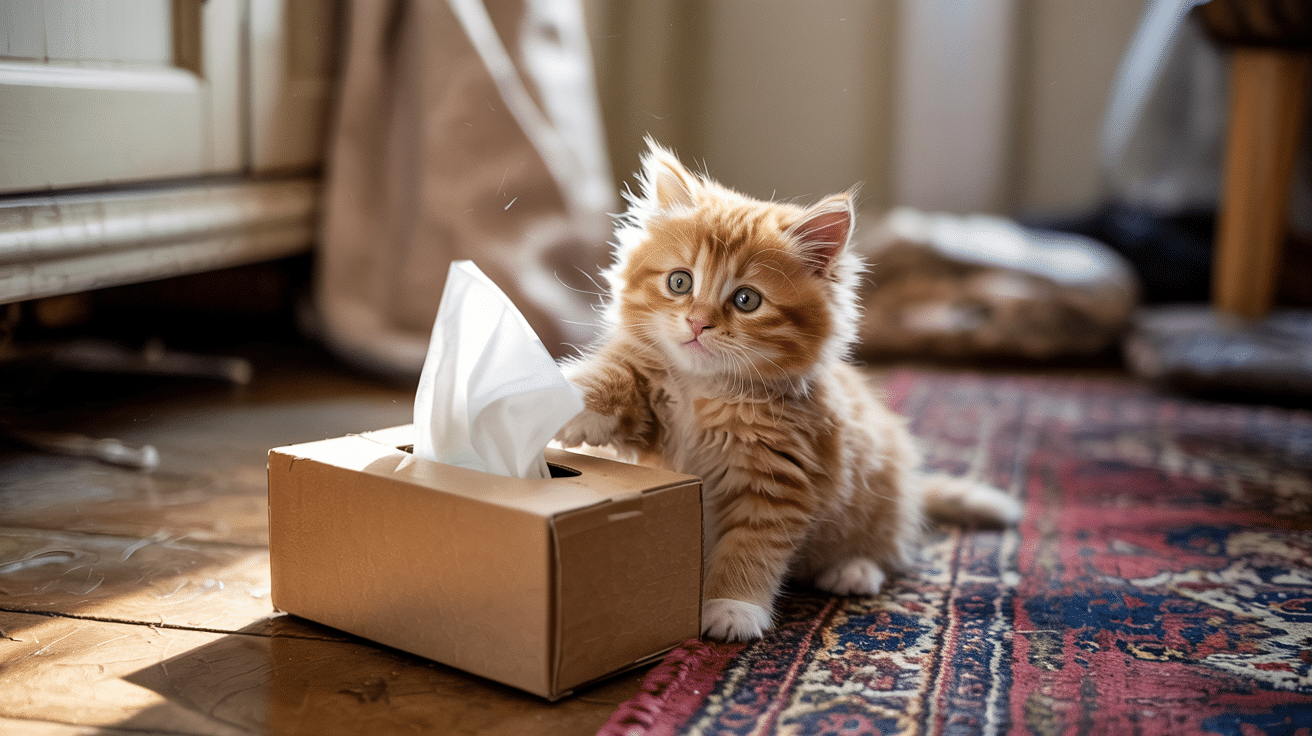
Give your cat an empty tissue box with the plastic removed. Many cats enjoy putting paws inside, pushing the box around, and sitting in it if they’re small enough.
How to Tell If Your Cat Needs More Play
Not sure if your cat is getting enough activity? Watch for signs of boredom or frustration. Common clues include over-grooming, scratching furniture, meowing for attention, or racing through the house at odd hours.
Some cats may even gain weight or seem withdrawn. These behaviors often mean your cat needs more play, stimulation, or variety in their day. Try rotating toys, switching up playtimes, or introducing new games.
Even a change in your routine—like a 10-minute evening session—can help. Every cat is different, so pay attention to what makes yours light up. If they respond to feathers, bubbles, or puzzle toys, you’re on the right track. A playful cat is usually a happier, healthier one, both mentally and physically.
Conclusion
You don’t need expensive toys or fancy setups to figure out how to entertain your cat—just your time, a little creativity, and the tips you’ve read here.
Playtime is key to keeping your cat healthy, happy, and curious.
Even a few minutes a day makes a big difference. Use these ideas to mix things up and find what your cat loves best.
Just remember: your attention is the one thing no toy can replace.
Want more ways to keep your cat thriving? Check out my other cat care blogs for more tips, tricks, and fun ideas to try next.
